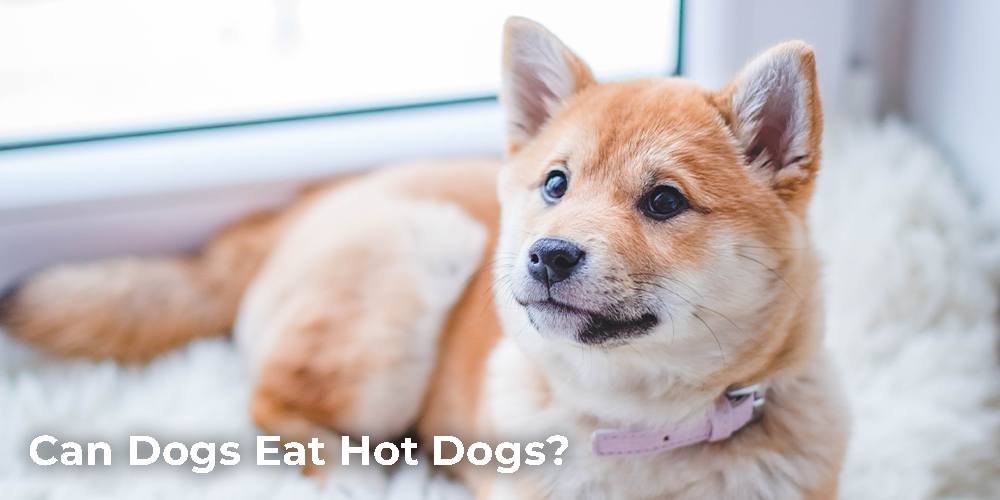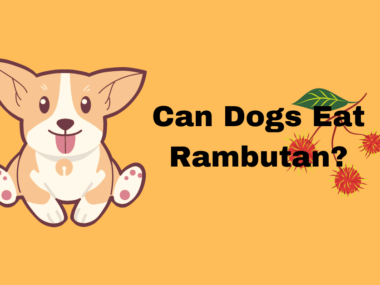If you’re a dog owner, chances are you’ve wondered whether your furry friend can enjoy a hot dog with you during those backyard barbecues or at your favorite ball game. After all, dogs undeniably love food, and hot dogs can be a tempting treat.Can Dogs Eat Hot Dogs? But before you share that delicious frankfurter with your canine companion, it’s important to understand the potential risks and consider their overall health.
Table of Contents
What are Hot Dogs?
Let’s start by understanding what hot dogs are. Hot dogs are popular sausages made from a blend of meat, typically pork, beef, or chicken, along with various seasonings and additives. These ingredients are ground together to form a smooth mixture, which is then stuffed into a casing and cooked.
READ ALSO: Can Dogs Eat Peanuts?
Nutritional Content of Hot Dogs
When it comes to the nutritional content of hot dogs, there are a few things to keep in you head. Hot dogs tend to be very high in fat, sodium, and calories. Additionally, they often contain preservatives and additives to enhance flavor and prolong shelf life. While these components make hot dogs a tasty indulgence for humans, they may be less beneficial for our canine companions.
Can Dogs Eat Hot Dogs?
Now, the burning question: can dogs eat hot dogs? The answer is not a simple yes or no. While a small piece of plain, fully cooked hot dog may not immediately harm dogs, it’s essential to consider the possible risks associated with feeding hot dogs to our furry friends.
SEE NOW: Can Dogs Eat Pumpkin Seeds?
Health Implications for Dogs Consuming Hot Dogs
One primary concern is the high sodium content found in hot dogs. Dogs have different dietary requirements than humans, and excessive sodium intake can lead to dehydration and strain of their kidneys. Moreover, the preservatives and additives in hot dogs, such as nitrates and nitrites, can be problematic for dogs, potentially causing gastrointestinal issues or allergic reactions.
Hot Dogs as Occasional Treats
Considering the potential risks, it’s best to treat hot dogs as occasional indulgences for dogs rather than regular fare. Moderation is key. If you share a hot dog with your furry friend, ensure it’s a small, fully cooked, and unseasoned portion. Remove any toppings that may harm dogs, such as onions or sauces. It’s crucial to prioritize your dog’s overall health and provide them with a balanced and appropriate diet.
Alternative Options for Dog-Friendly Hot Dogs
Fortunately, healthier alternatives are available if you want to treat your dog to a hot dog-like experience. You can find commercially available dog-friendly hot dog products made specifically with canine nutritional needs in mind. Alternatively, you can prepare homemade hot dog alternatives using lean meats and dog-friendly ingredients. This way, you can enjoy a treat with your dog without compromising their well-being.
Signs of Hot Dog Intolerance or Toxicity in Dogs
Every dog is unique, and some may be more sensitive than others to certain foods, including hot dogs. It’s crucial to be aware of any signs of intolerance or toxicity if your dog consumes hot dogs. Monitor for symptoms such as vomiting, diarrhea, excessive thirst, lethargy, or allergic reactions like itching or swelling. If you notice any concerning symptoms, it’s best to consult your veterinarian for guidance.
SEE NOW: Can Dogs Eat Beets?
In Conclusion – Can Dogs Eat Hot Dogs?
While the delicious aroma of hot dogs may entice dogs, it’s important to approach this popular food cautiously. Hot dogs are not a recommended staple in a dog’s diet due to their high sodium content, preservatives, and additives. However, as occasional treats, in small and unseasoned portions, hot dogs can be enjoyed safely.
Remember, your dog’s health and well-being should always be the priority. Treat them to a balanced and appropriate diet that meets their nutritional needs. If you want to share a special moment with your furry friend, explore dog-friendly alternatives or consult your veterinarian for recommendations.
So, the next time you’re at a backyard barbecue or watching the big game, be mindful of what you share with your dog. While they may not be able to enjoy a traditional hot dog, there are plenty of other ways to make them feel included and loved. After all, nothing beats the happiness of spending quality time with our four-legged companions.
Additional Resources
For more information on dogs’ dietary needs and safe food choices for your canine friend, check out these resources:
- American Kennel Club (AKC) – Human Foods Dogs Can and Can’t Eat
- Veterinary Centers of America (VCA) – Feeding Your Dog
Remember, a well-informed and responsible pet owner best advocates for their dog’s health and happiness.




